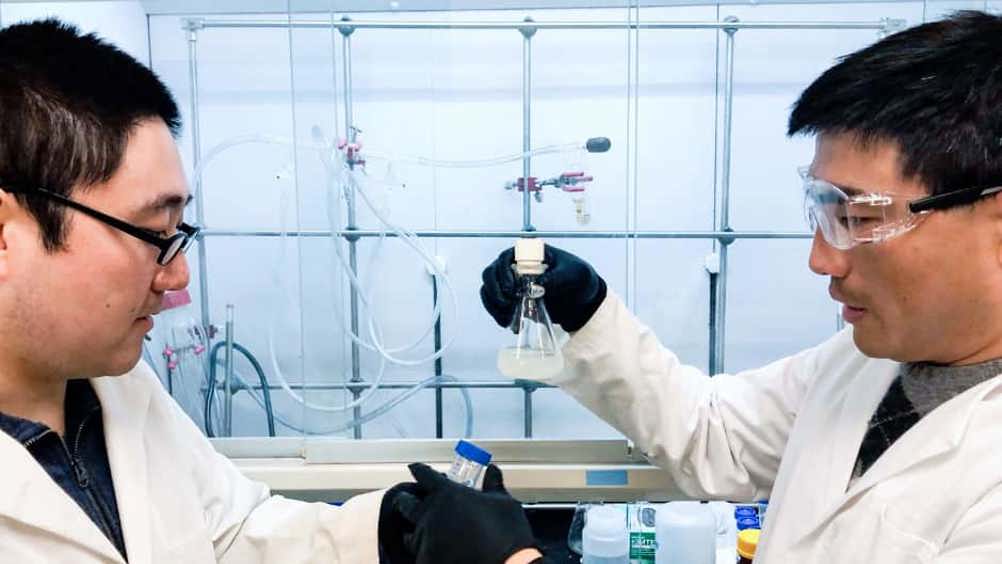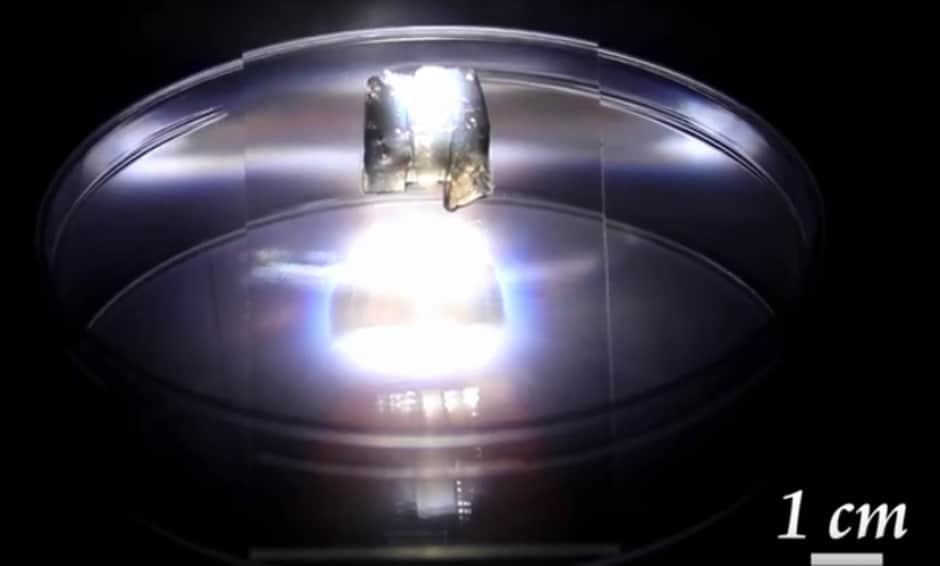Hydrogels harvest moisture to produce clean water from air

Engineers have developed hydrogels that could tap the approximately 50,000km³ of water contained in the atmosphere, an advance that could help alleviate water crises.

The breakthrough from The University of Texas at Austin is a solar-powered technology that absorbs moisture from the air and returns it as clean, usable water. The technology, which is described in Advanced Materials, relies on hydrogels, which are gel-polymer hybrid materials that can retain large amounts of water and release it on heating.
This combination has been proved to work in humid and dry weather conditions and is crucial to enabling the production of clean, safe drinking water from the air.
The research team was led by Guihua Yu in UT Austin's Cockrell School of Engineering. "We have developed a completely passive system where all you need to do is leave the hydrogel outside and it will collect water," said Fei Zhao, a postdoctoral researcher on Yu's team and co-author of the study. "The collected water will remain stored in the hydrogel until you expose it to sunlight. After about five minutes under natural sunlight, the water releases."
Register now to continue reading
Thanks for visiting The Engineer. You’ve now reached your monthly limit of news stories. Register for free to unlock unlimited access to all of our news coverage, as well as premium content including opinion, in-depth features and special reports.
Benefits of registering
-
In-depth insights and coverage of key emerging trends
-
Unrestricted access to special reports throughout the year
-
Daily technology news delivered straight to your inbox










Simulations show Optimal Design for Bladeless Wind Turbines
"an 80cm mast" Really? I'm short but that's only half my height! Do they mean 800cm?